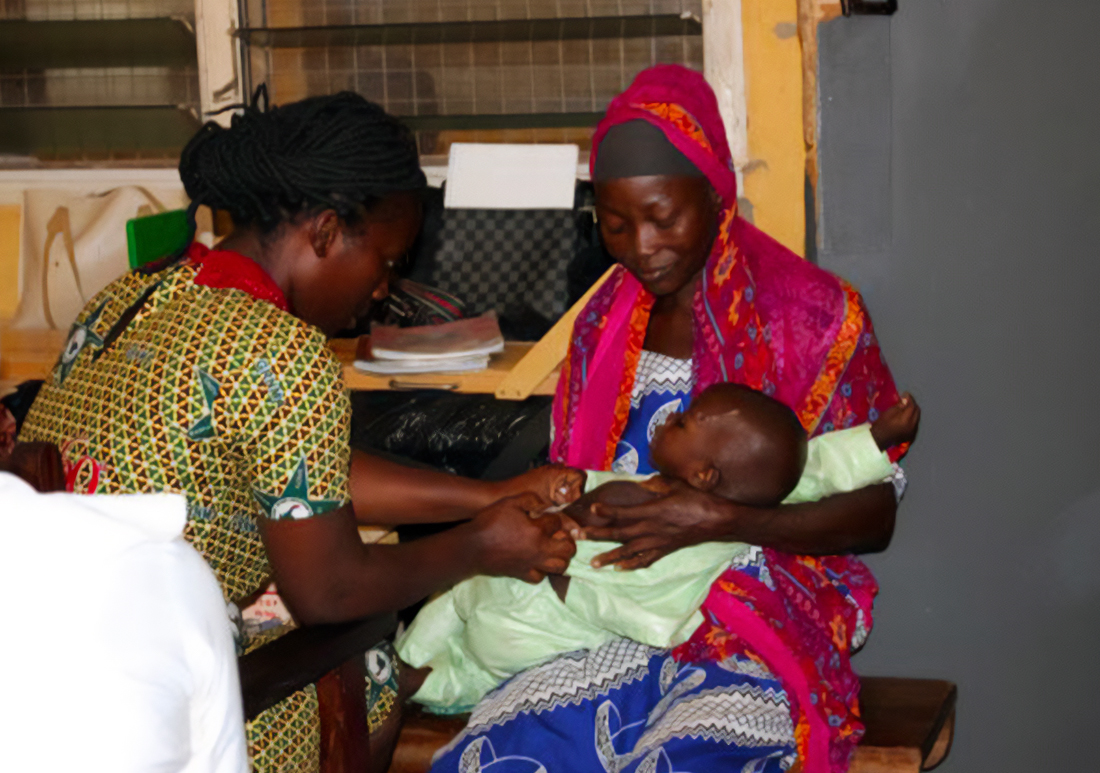
USAID Advancing Nutrition recognizes the importance of strengthening systems to improve food and nutrition security. Strengthening the capacity of health systems to deliver multi-sectoral nutrition programming is one of our key strategies for sustainability and success. Health worker capacity or performance is critical to a well functioning health system. Health worker performance is determined not only by individual knowledge and skills, but also by the timely provision of performance feedback and the availability of necessary information, tools, and supplies.
In Ghana, USAID Advancing Nutrition conducted a range of activities to strengthen the capacity of the health system to provide quality nutrition services, particularly for pregnant women, lactating mothers, and children under five years.
| To plan and prioritize training activities, we conducted a needs assessment in 38 districts in northern Ghana. The assessment revealed that many health workers lacked training in growth monitoring and promotion (GMP), infant and young child feeding (IYCF), anemia prevention and control (APC), community-based management of acute malnutrition (CMAM), outreach planning, the Quality Improvement (QI) approach, and the use of the nutrition scorecard. | |
| Based on these findings and in collaboration with the Ghana Health Service (GHS), USAID Advancing Nutrition trained over 7,000 health workers; we trained 1,095 in IYCF, 1,368 in APC, 544 in CMAM, 420 in outreach planning, 609 in the QI approach, and 420 on the use of the nutrition scorecard. | |
We also supported implementation of the quality improvement (QI) process. In partnership with GHS, we identified QI coaches and trained ten coaches per district, totaling170 coaches. Coaches formed QI teams in 222 health facilities and organized monthly meetings to identify problems, test change ideas, and study results. Subsequently, we organized 51 learning sessions for QI teams to share experiences. Eighteen months after teams were formed, almost all were still functional. Problem: Saint Lucy Polyclinic in Sagnarigu district noticed low Vitamin A supplementation coverage among children 24–59 months, attributing this to caregivers discontinuing child welfare clinic (CWC) visits once their children reached 24 months of age. | |
| Additionally, we provided logistical and financial support to regional and district health authorities to conduct 240 supervision visits over the course of nine months, using a checklist provided by Ghana Health Service. | |
| Lastly, we procured and distributed materials that health workers had been trained to use, and provided logistical and financial support to 452 health facilities that enabled staff to provide outreach services to 2,260 hard-to-reach communities and conduct approximately 192,264 home visits. Materials distributed included maternal and child health record books, CMAM out-patient care cards, CMAM ratio cards, IYCF registers for pregnant women, child health and nutrition registers, IYCF registers for children, and ANC registers. These materials are expected to be sufficient for at least 24 months. |